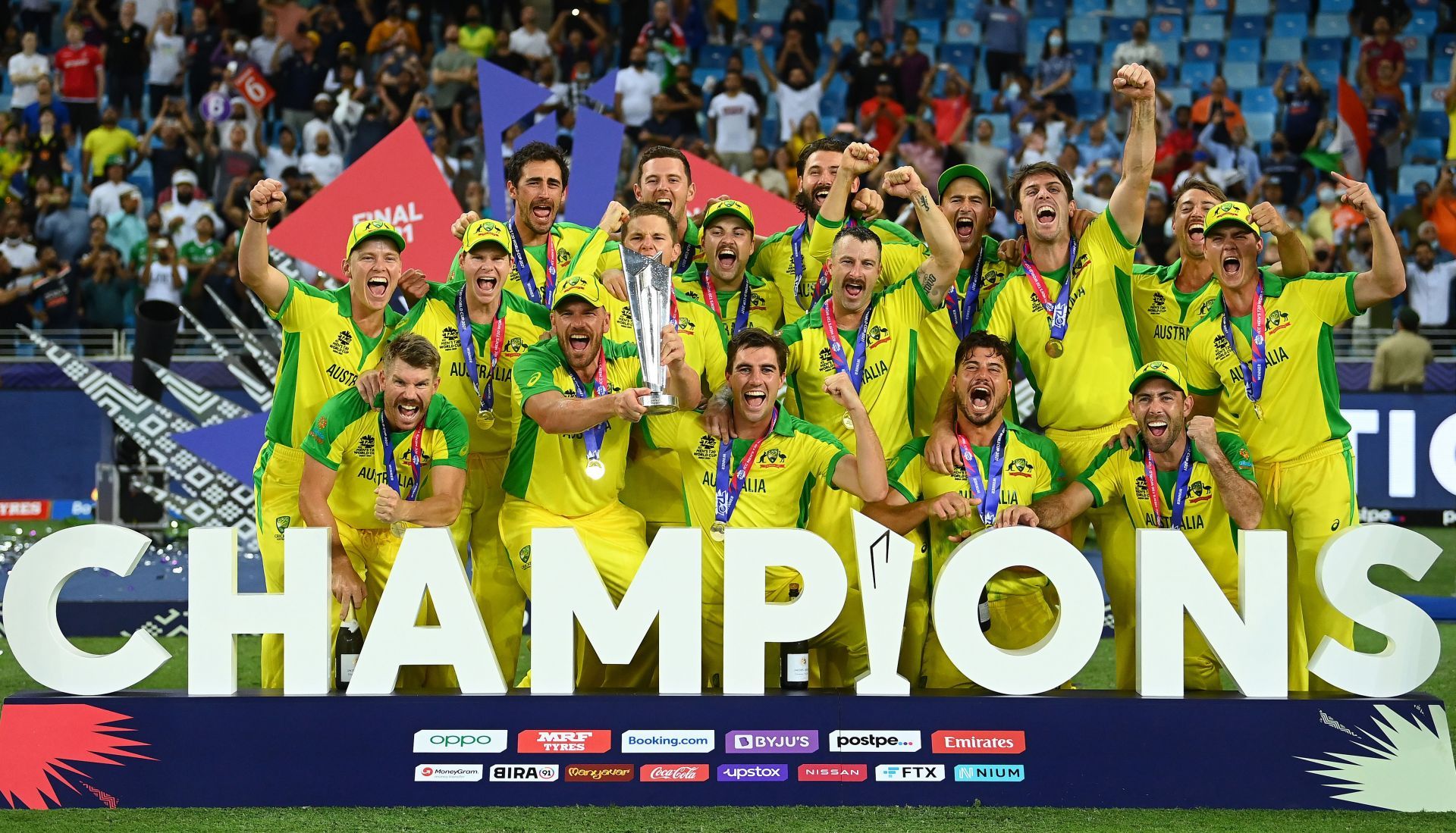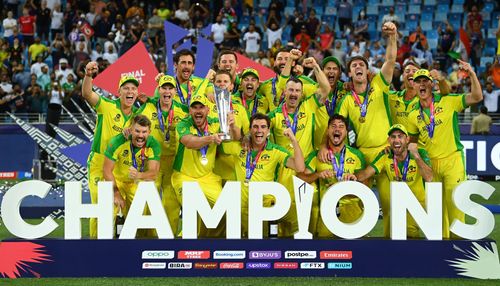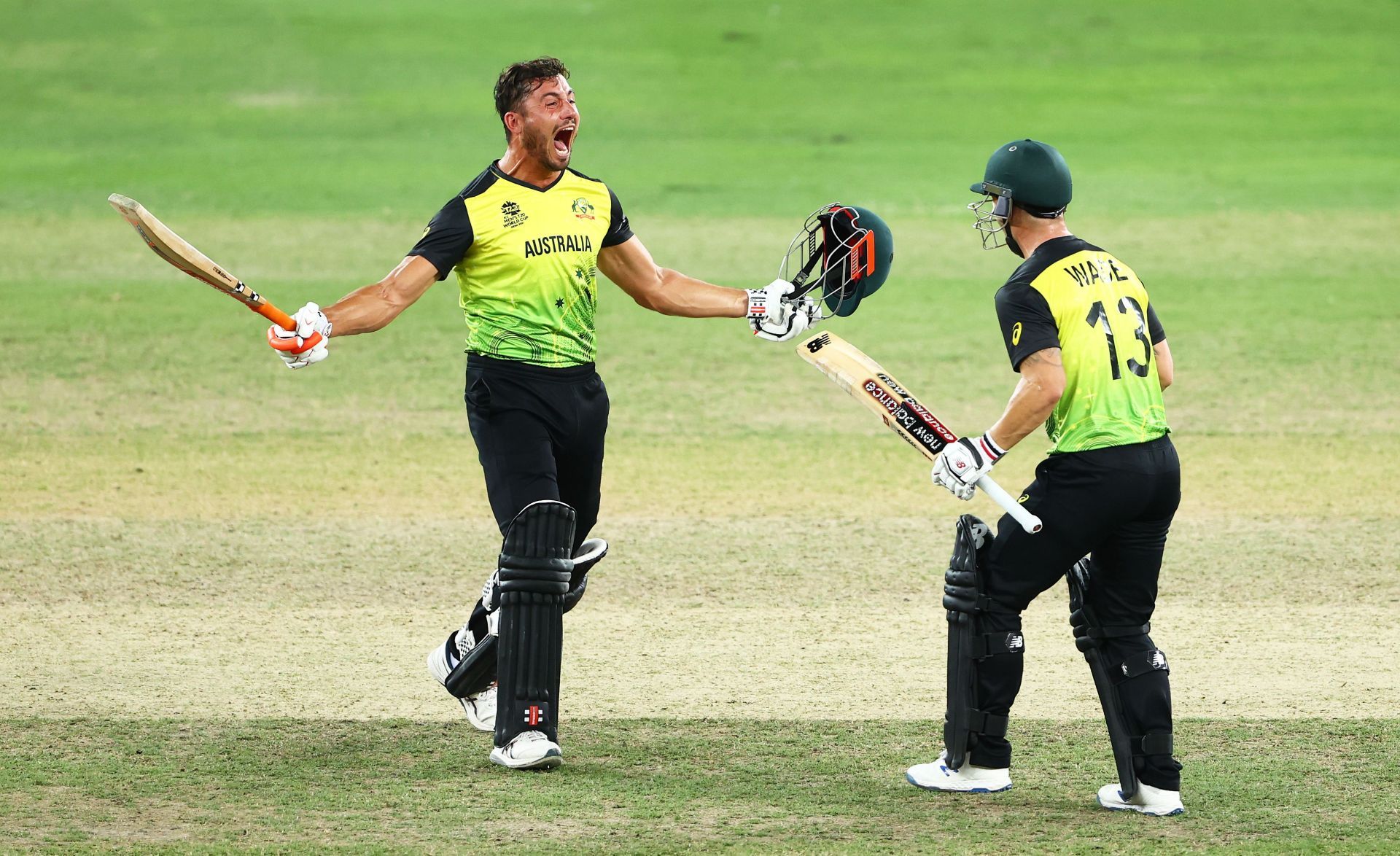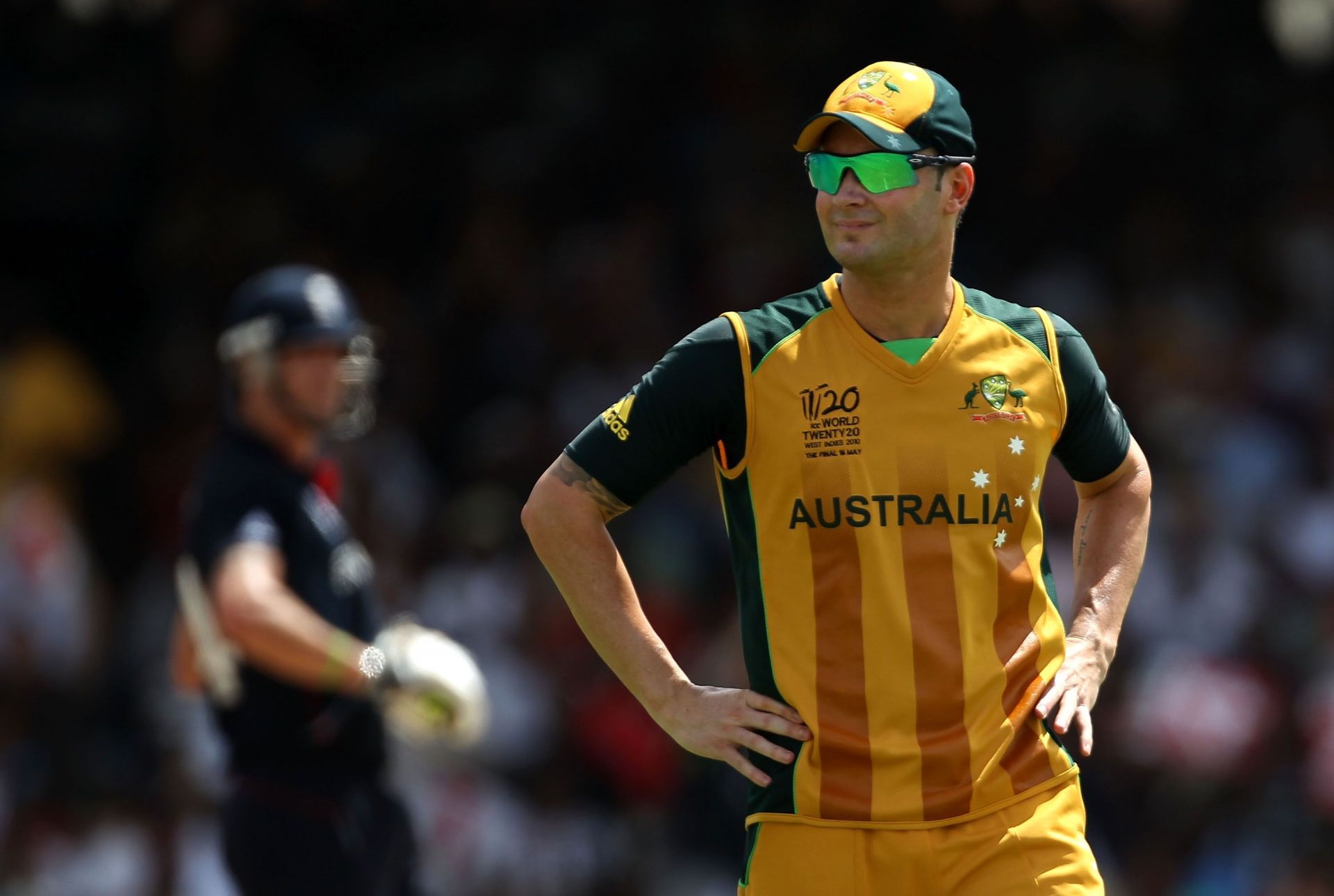
ICC T20 World Cup 2021: The virtues behind Australia's triumph at this year's tournament

Two words that one can associate with the Australian cricket team of late 1990s and early 2000s are invincible and favorites. Be it Steve Waugh’s 1999 World Cup winning team or Ricky Ponting’s side that triumphed in the 2003 and 2007 World Cup tournaments - the Australian sides of that era had an aura of invincibility surrounding them.
Whenever they played, they started as the favorites irrespective of the conditions, format of the game, and the opponents they were up against.
However, Aaron Finch’s side that just won the ICC T20 World Cup in UAE were neither invincible nor favorites entering this year’s event. In fact, Team Australia had a dismal run in T20Is this year heading into the World Cup.
Australia had hit a rock bottom, suffering 1-4 T20I series defeats against West Indies and Bangladesh earlier this year. The ignominious defeat in the Test series against India at home at the start of 2021 set the tone for Australia’s struggles this year. They succumbed to a streak of T20I series defeats against New Zealand, West Indies and Bangladesh thereafter in the lead-up to the marquee event.
Leading into the 2021 T20 World Cup, Australia were far from being the favorites to win the title. Even unfamiliar conditions in the UAE seemed to nullify whatever chance they stood to make a mark on this year’s tournament.
But matches and tournaments aren’t won based on past results and teams on paper, are they? Australia’s maiden title run at the T20 World Cup is a reward for their fighting spirit, never-say-die attitude and their ability to stick together as a unit.
Finch’s T20 World Cup-winning side might not be as maverick, talismanic, or invincible as Australian teams of the past. However, they still share an important quality with their predecessors that quintessentially resembles Australian culture itself.
Australia’s toughness and relentlessness helped them overcome all the obstacles

Australian teams are meant to be tough and aggressive. They face their opponents in the eye, fighting toe-to-toe until the end. Finch’s side displayed that virtue in spades throughout their glorious run at this year’s T20 World Cup, overcoming all the obstacles that came along their way.
Their first Super 12 encounter set the tone for their campaign, staying clutch in the crucial moments to escape a tricky challenge against South Africa. Beatdown against their arch-rivals England in their third Super 12 fixture was a massive wake-up call for Australia. But they never looked back since.
Their dominant performances against West Indies and Bangladesh propelled them into the semifinals. But their watershed moment arrived when Matthew Wade and Marcus Stoinis pulled them from the jaws of defeat against Pakistan in the semis.
They were staring at defeat around the 13-over mark against Pakistan after losing half of their side with plenty of runs still to get and not much time left to get those. However, they weren’t ready to throw in the towel yet. Showing toughness and champion-like attitude, Wade and Stoinis helped them get over the line to reach their 2nd T20 World Cup final.
Australians don’t believe in losing and have an innate ability to always seek solutions when they find themselves under the ropes. The higher the stakes, the better they fare. Their performance in the final against their Trans-Tasman rival New Zealand is a testament to their ability to play clutch in crucial moments.
Their title victory is a case of team-effort in true sense

Whenever Australia found themselves in a precarious situation at this year's T20 World Cup, they always had someone to stand tall and weather the storm.
David Warner, the man of the tournament, was in abysmal form in the lead up to the marquee event. But he was the heart and soul of Australia’s batting throughout the tournament, amassing 289 runs off seven games. Performing like a cornered tiger, Warner got his team off to quickfire starts despite his opening partner and captain Finch struggling for runs. Warner ensured his side never felt the burden of his captain’s lack of form.
Mitchell Marsh was perhaps the most intriguing success story of this year’s T20 World Cup. The younger of the Marsh brothers came into his own and finally justified his potential to the fullest. He repaid the faith his team and their fans has shown in him over the years.
The leg-spinner Zampa was a revelation, claiming 13 wickets in the tournament. He played his role to perfection by squeezing the opposition batsmen during the middle overs.
Coming into the final, Hazlewood was under pressure after taking a hammering against Pakistan in the semifinal, conceding 49 runs off his four overs. However, he put that behind him to become one of the star performers in the final for Australia, returning with figures of 3-16 from his four overs.
Australia’s maiden T20 World Cup triumph is a fine example of players repaying the faith their captain and team management had shown in them. Except for their clash against England, when Aston Agar replaced Mitchell Marsh in their side, Australia stuck to the same playing XI throughout the tournament. It brought them rich dividends.
Clutch in the finals of the ICC tournaments

Australia have always been clutch in the finals of the ICC tournaments. Their commanding performance against New Zealand in the final on Sunday is just an extension of their ruthless and dominant performances over the years.
Barring the 2010 T20 World Cup, when Australia lost to England, they have not lost in any other final of the ICC event this century. In this period, they have won 2003, 2007 and 2015 50-over World Cup tournaments and 2006 and 2009 Champions Trophy.
The ICC T20 World Cup was the only global white-ball title missing from Australia’s glittering trophy cabinet. However, after their emphatic eight-wicket win over Blackcaps in the final, Australia’s trophy cabinet is now finally complete.